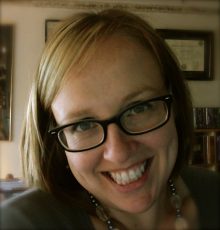Writing Now, Right Now, Together
 We often think of writing as a solitary pursuit—a lonely habit isolating us from others. Perhaps that is why writers are experts at procrastination. That is certainly my reason: I became a historian out of a curiosity about people, and I often put off my writing in favor of immediate human connection. But recently I have learned that scholarly pursuits are not at odds with forging human ties. My most soul-enriching and life-affirming writing emerges from a community. It comes when I write solitarily, but in solidarity. It arises from Write Now, Right Now (WNRN), a program I created to gather Wheaton professors together to write.
We often think of writing as a solitary pursuit—a lonely habit isolating us from others. Perhaps that is why writers are experts at procrastination. That is certainly my reason: I became a historian out of a curiosity about people, and I often put off my writing in favor of immediate human connection. But recently I have learned that scholarly pursuits are not at odds with forging human ties. My most soul-enriching and life-affirming writing emerges from a community. It comes when I write solitarily, but in solidarity. It arises from Write Now, Right Now (WNRN), a program I created to gather Wheaton professors together to write.
The path to WNRN was a long and winding one, sparked by my struggles to make time for scholarship. My faculty writing group first helped me become more productive and fulfilled as a scholar. Over time, I discovered the deep yearning that other Wheaton faculty have for a richer, more vibrant, more communal, more productive intellectual life. The problem was clearly not mine alone. I realized that if I wanted to make a difference in my scholarly life, I needed to make a difference in my colleagues’ scholarly lives.
I began by surveying other faculty about their needs and desires as scholars and artists. One shared her positive experience in an online writing group; another told me about the “Shut Up and Write” sessions that had been storming the country. An idea was born—but with a more inviting name: Write Now, Right Now.
We began in fall 2016 by setting aside two-hour time slots to gather and work on writing. We moved all over campus, from room to room, building to building. I lugged a huge thermos of coffee, and hoped for companions. Sometimes only one person showed up, but although I had pulled my resistant body out of bed at an early hour, I discovered that it was always worth it. Because for two hours, I actually wrote. Even so, I was grateful that on most days, three or four people showed up, and with them came gratitude, energy, and collegiality. The demand was there, and by mid-October, WNRN was happening five days a week. Still, the changing rooms created many missed connections.
By fall semester’s end, Associate Provost Shawn Christian connected us with CompSci, who offered to share their iLab (nestled within the Computer Museum in Science Center 1348) . This generosity would change everything. In January my co-conspirator Aubrey Westfall helped me decorate our new space. We turned a cold, sterile room flooded with soul-killing florescent lights into a warm and inviting space filled with comfortable seating, warm lamps, inspirational posters, a refrigerator, and coffee maker.
Just three weeks into the semester, we have been writing and reading, researching and thinking every weekday, from 8:30am to 10:30am. At least four people are at that table every morning. We concentrate fiercely but also laugh. We brew coffee and sip tea. We share our frustrations and our victories. We have clocked in nearly 100 hours already this semester, and all can testify to the fact that something much more than writing is happening in that room. We write solitarily, but in solidarity—and I have never felt happier or more confident about myself as a writer and scholar.
-
Categories:
- Writing